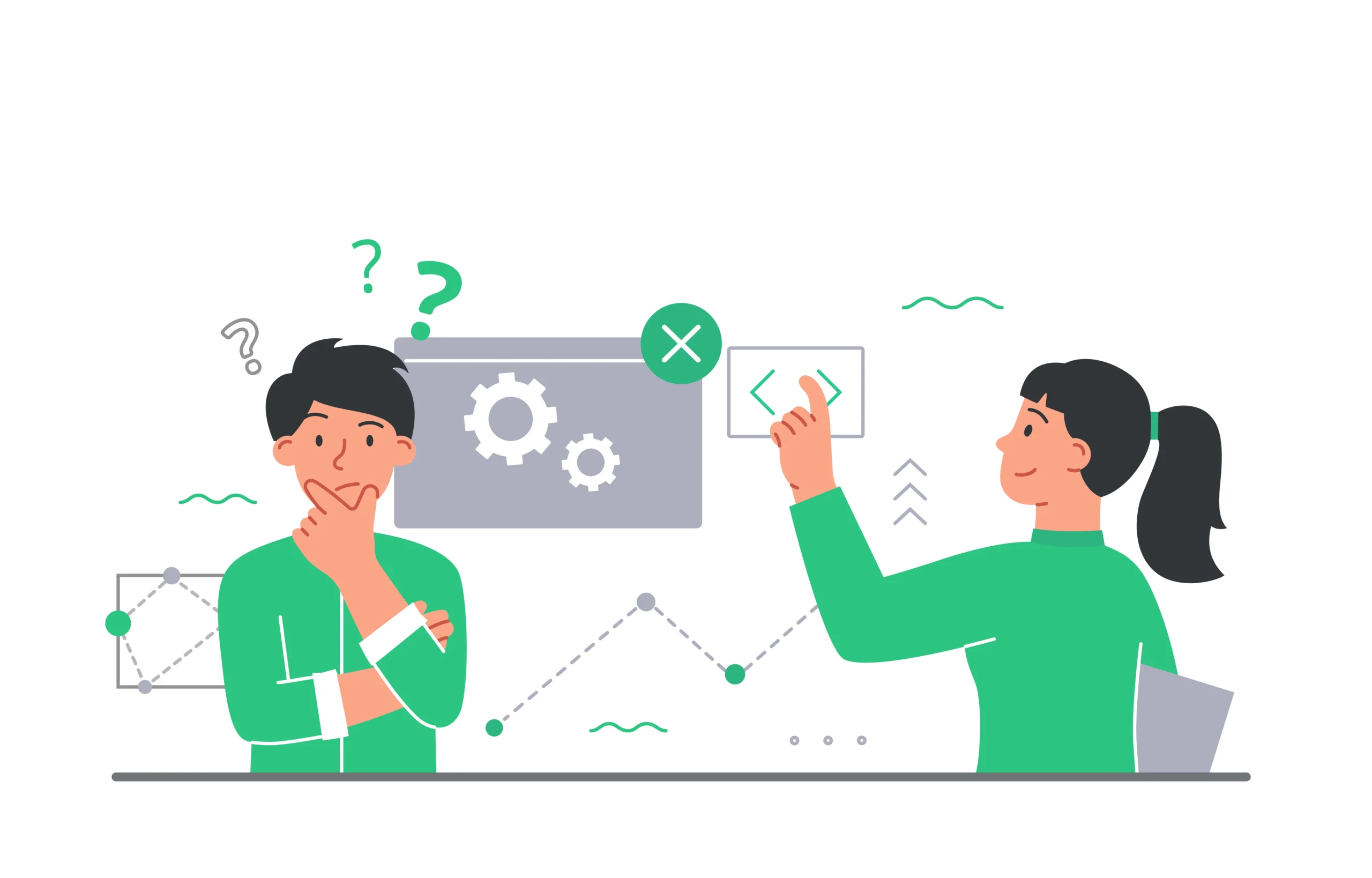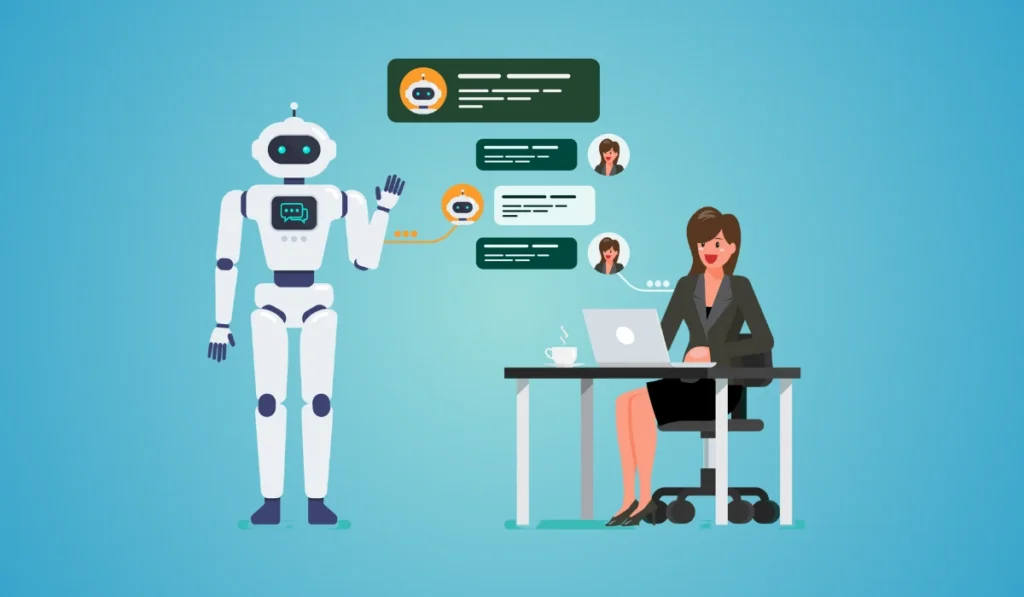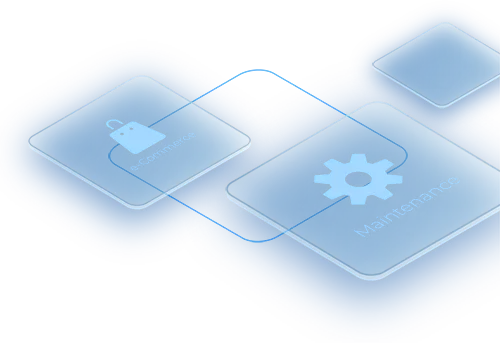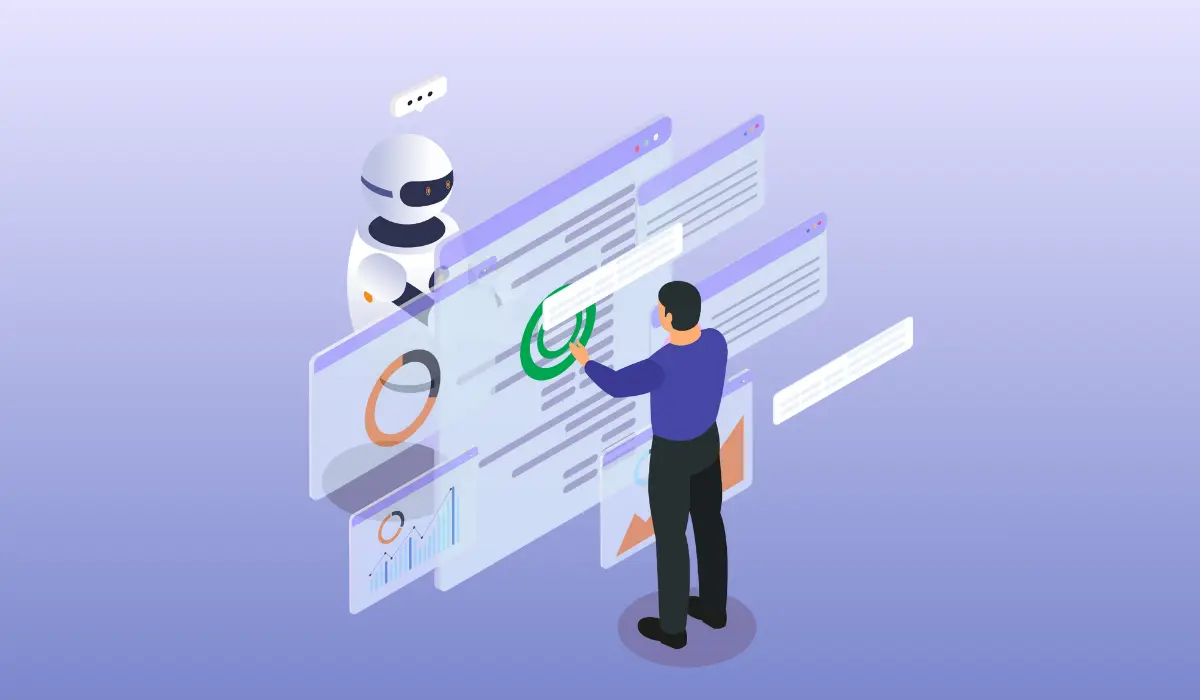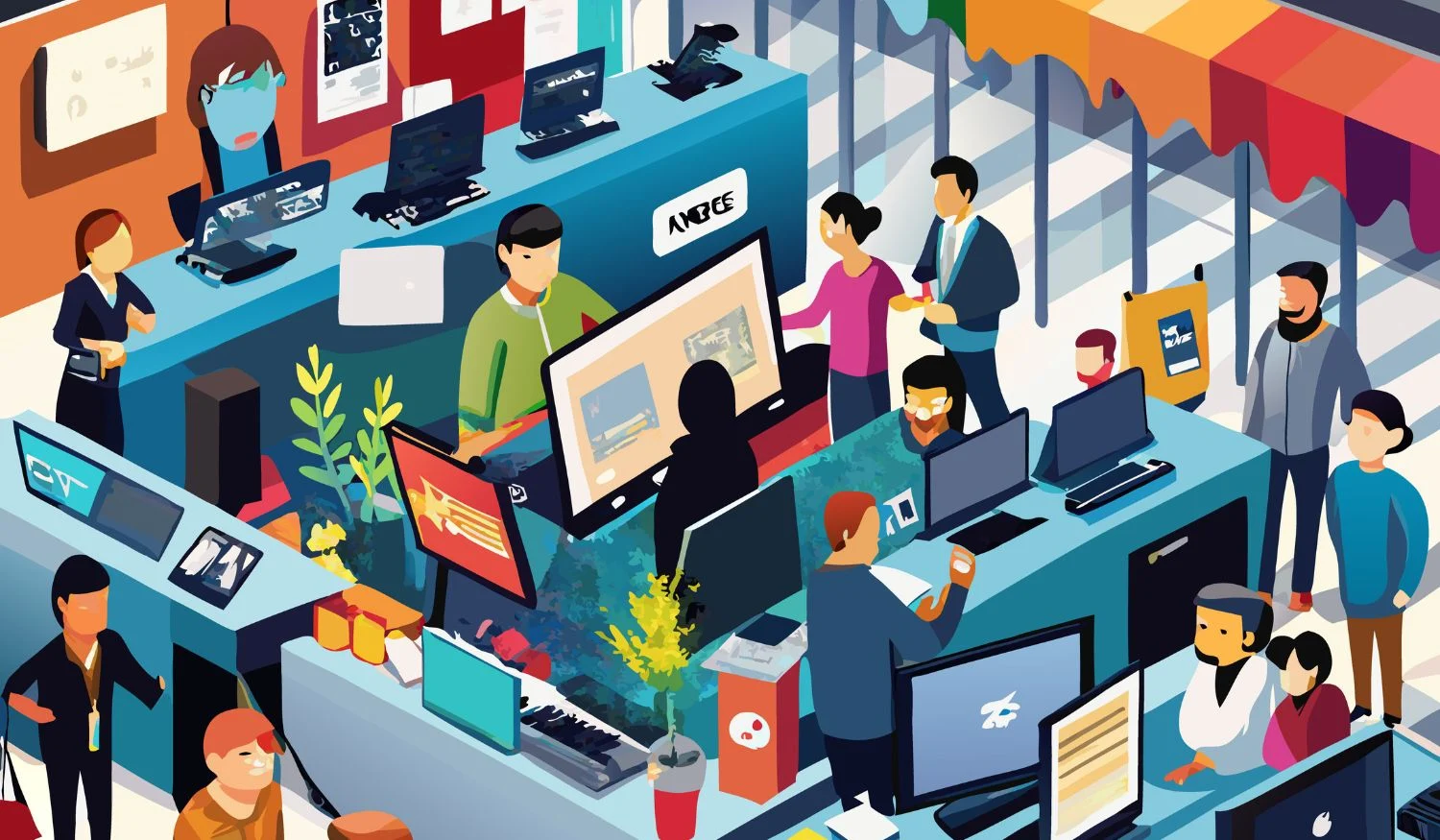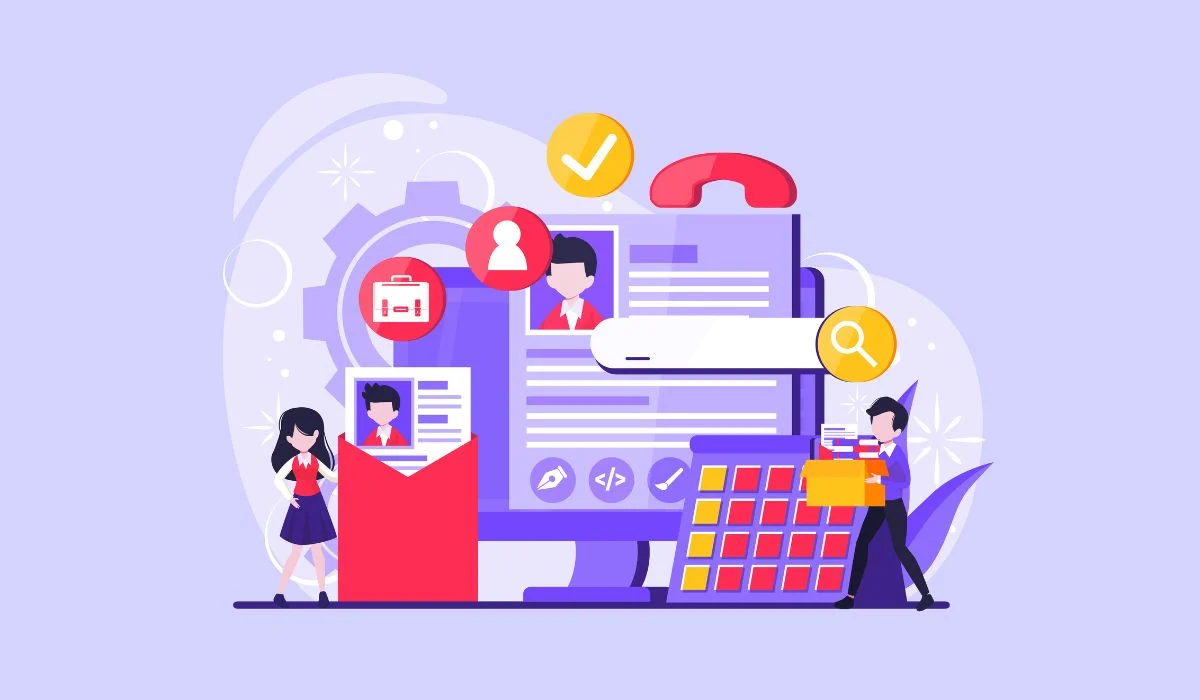AI works alongside HR professionals to make their jobs easier and more effective, so no need to worry about the wrong intuition that Ai will replace humans. Understanding this technology helps businesses create better working environment for their employees.
key takeaways
- AI helps HR save time by handling tedious tasks like sorting resumes and scheduling interviews.
- AI uses data to help HR make smarter decisions about hiring, training, and supporting employees.
- AI is a helpful tool, not a replacement—it works alongside people to make HR work better and faster.
What is AI for HR and How It Works
AI for HR is like a smart helper for the people who hire and manage employees. AI does your job fast where HR teams need to spend hours sorting job applications or scheduling interviews.
AI uses computer programs that learn from lots of information. By analyzing resumes and employee reviews AI helps to spot patterns. This helps HR find the best candidates or figure out what training employees need.
So, AI takes care of routine tasks, letting HR focus on important decisions and helping people grow. That’s what understanding artificial intelligence in human resource management is all about.
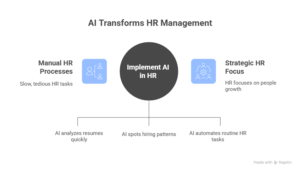
Key Applications of AI in HR Management
AI in HR is popping up in many parts of HR. Here are some ways it’s helping:
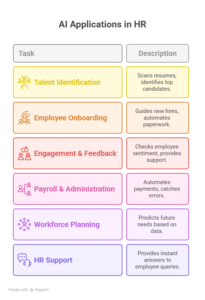
AI in Recruitment and Talent Acquisition
Hiring the right people is not a simple task. It can be tough and time-consuming. AI helps HR identify top talent by scanning resumes quickly, picking out the best candidates based on skills and experience rather than focusing on keywords. It helps HR teams find the right people without bias and faster than humans alone.
AI-powered Employee Onboarding
When someone new joins a company, AI can guide them through the paperwork and training. It can send reminders, answer questions, and help make the start less stressful.
AI for Employee Engagement & Feedback
AI in HR can check in with employees regularly through surveys or chats to see how they’re feeling. This helps companies sense when someone might be unhappy or need support before everything goes wrong.
AI in Payroll & HR Administration
Paying employees and handling benefits can sometimes get complicated. AI helps catch errors, process payments on time, and make sure everything runs smoothly, saving HR teams from a lot of headaches.
Predictive Analytics for Workforce Planning
Workforce intelligence generated through AI means looking at data from the past and present to predict what the company might need in the future. For example, it can help figure out if more workers are required during busy times or if some roles might need to alter.
AI Chatbots for HR Support
Have any doubts regarding your vacation days or health benefits? AI chatbots are like friendly robots you can ask anytime. AI provides quick answers without waiting for a human.
Benefits of AI in HR
Using AI in HR brings some real perks:
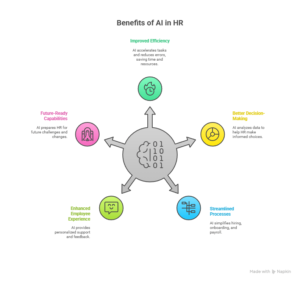
- Improved Efficiency & Cost Savings: AI accelerate tasks and saves money by doing things faster and with lesser mistakes.
- Better Decision-Making with Data: AI algorithms analyze vast amounts of employee data to help HR teams make smarter choices.
- Streamlined HR Processes: Duties such as hiring, onboarding, and payroll become smoother with less fuss.
- Enhanced Employee Experience: Employees get prompt help, personalized training, and better feedback.
- Future-Ready HR Capabilities: AI in HR is changing the way we work and manage talent, helping companies stay ready for whatever comes next.
Real-World Examples of AI in HR
Lots of companies already use AI in HR. Applicant Tracking Systems (ATS) automatically sort job applications and schedule interviews. Performance management tools use AI to give ongoing feedback, helping workers improve. AI chatbots answer common HR questions anytime. Some companies even use AI to create personalized learning plans or draft job descriptions quickly.
Ethics and Compliance in AI-Powered HR
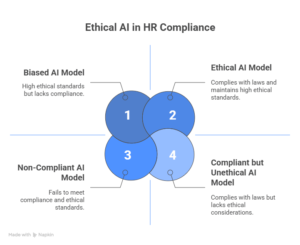
Even though AI helps a lot, it’s not perfect. It needs to follow privacy laws like GDPR that protect employee data. AI systems have to be fair and avoid bias. For instance, if AI is trained on data that favors certain groups, it might make biased decisions. That’s why companies work hard to build ethical AI models and follow rules to keep things right and respectful.
Challenges of Using AI in HR
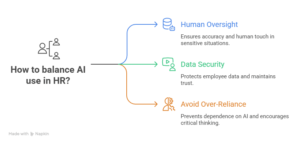
AI can’t do everything. Sometimes it makes mistakes or misses the human touch needed in sensitive situations. There’s also a risk that people over-depend on AI and forget to double-check decisions. In addition, keeping employee data safe is always a top priority.
How to Adopt AI in HR Successfully
Bringing AI into HR isn’t just about buying software. It means training HR teams to work with AI, choosing the right tools, and planning carefully. Companies that take time to adjust and involve people tend to get the best results.
Future of AI in HR
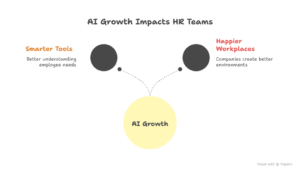
AI in HR will keep growing. It’s moving from just helping with tasks to becoming an inevitable part in HR teams. We’ll see smarter tools that understand employee needs better and help companies create happier workplaces.
Conclusion
AI is assisting HR teams work smarter, not harder. It will take care of repetitive tasks and give useful insights. AI lets people focus on what really matters which is supporting employees and building better workplaces. Understanding AI in HR shows us that this technology isn’t about replacing humans, but about making their jobs easier and more effective.
At EBR Software, we help businesses unlock the power of AI-driven HR. Connect with us to make your HR smarter and more efficient.
